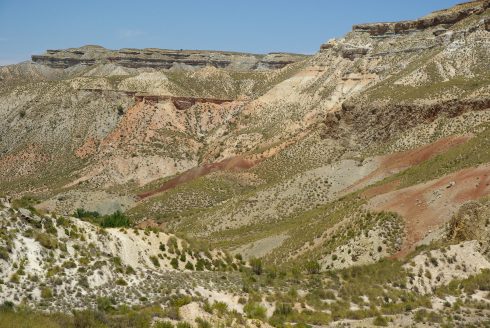MALAGA residents have complained about the appearance of processionary caterpillars which can be fatal to dogs if they come into contact with them.
It follows similar reports in Murcia, the Costa Blanca, Madrid, and the Balearic Islands, with the insect venturing around earlier than normal due to the mild winter.

Iñigo Garcia Uriarte from pest control firm Rentokil said: “The early advance of the caterpillar is due to the fact that we have less cold winters and and exceptionally warm temperatures.”
The above normal temperatures coupled with low rainfall allows the caterpillar to enjoy better conditions to reproduce for a longer time frame.
“The appearance of the caterpillar is normally in the spring,” said Garcia Uriarte.
The caterpillar eggs are laid inside floss nets on pine trees and problems start when they hatch and drop to the ground in search of food.

The caterpillars have tiny barbed hairs containing a protein called thaumetopoein, and if they feel threatened, they will shoot their tiny hairs like harpoons.
This can cause allergic reactions, foaming at the mouth and vomiting if young children come into contact with them.
The biggest risk is to dogs who may sniff or step on one, causing irritation to the paw which is then licked and the toxins transferred to the mouth.
They could suffer breathing difficulties, vomiting or start foaming at the mouth and should be taken urgently to the nearest veterinary clinic for an immediate cortisone and antibiotic injection.
Rapid intervention and sometimes amputation of the tongue or nose is the only course of action.
Malaga started spraying pine trees in November but there have been multiple sightings in recent days in urban areas like the Les Flores neighbourhood, with long caterpillar trails spotted on streets and pavements.
Residents say that it has been impossible to take dogs out for a walk and to avoid stepping on the insects which means they are bringing toxins into homes.
Malaga City Council say they have treated pine trees in public areas and the problems have arisen from privately-owned pines that have not been sprayed.








